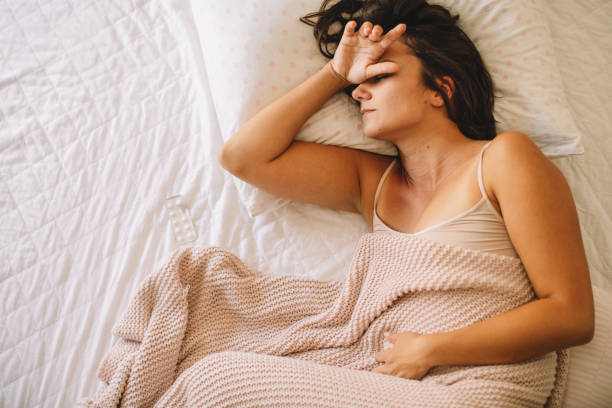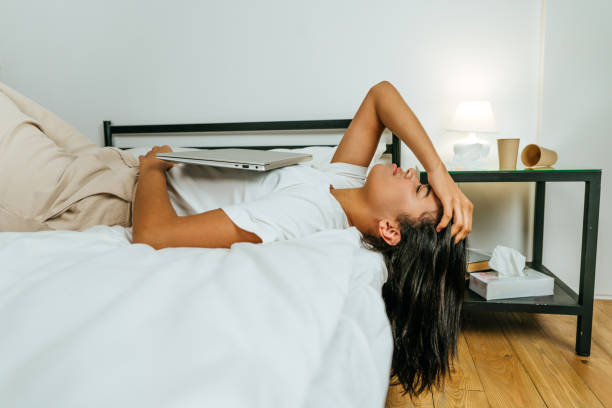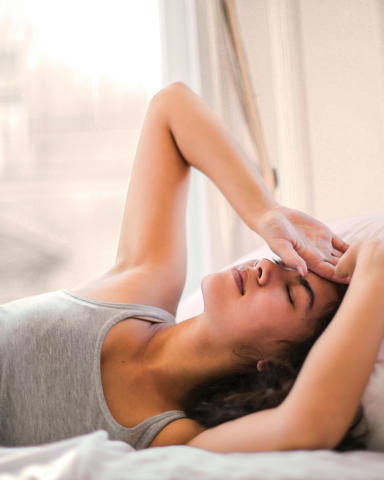Introduction
Insomnia, the bane of the night, is a sleep disorder that is prevalent worldwide, disrupting the lives of millions of people and greatly hampering their well-being. Whether you're a night owl struggling to sleep or an early riser looking to extend your sleep hours, insomnia is a scourge to overcome. Fortunately, there are natural and effective ways to combat this disorder and enjoy restful, well-deserved sleep. In this article, we will explore these different methods and give you the tools you need to end insomnia.
Understanding insomnia
What is insomnia?
Insomnia is a sleep disorder characterized by difficulty falling asleep, frequent awakenings during the night or waking up prematurely in the morning. People with insomnia often feel like they haven't gotten enough sleep, which can lead to fatigue, decreased cognitive performance, and depressed mood.
The different forms of insomnia
Insomnia can be short-term (acute) or prolonged (chronic). Acute insomnia is often caused by a stressful situation, such as a family argument, an important exam, or a major life change. Chronic insomnia, usually lasting a month or more, may be due to underlying medical or psychiatric problems or certain medications.
Risk factors and causes of insomnia
Insomnia is often the result of a complex mix of factors. Stress, anxiety, depression can all contribute to sleepless nights. Additionally, certain medications, consumption of stimulating substances like caffeine, jet lag, and even sleep disorders like sleep apnea can cause insomnia.
The sleep environment
Arrange your sleeping space
It is essential to make your bedroom a sanctuary conducive to sleep. This may involve using blackout curtains, removing electronic devices, adding white noise or a fan to mask disruptive noises, and choosing comfortable bedding.
Importance of darkness and silence
Darkness and silence can greatly improve the quality of sleep. Darkness promotes the production of melatonin, a hormone that regulates the sleep-wake cycle, while silence can prevent nighttime awakenings.
The ideal temperature for sleeping
The temperature of your bedroom can also affect your sleep. Most people sleep best in a cool room, with a temperature of around 18°C.
Relaxation techniques to combat insomnia
Meditation and mindfulness
Meditation and mindfulness are powerful techniques for calming the mind and body, reducing stress and improving sleep quality. By focusing on the present moment and accepting our thoughts and feelings without judgment, we can create a state of relaxation that promotes deeper, more restful sleep.
The importance of rituals before bed
Having a regular bedtime routine can signal to our bodies that it's time to relax and sleep. This routine may include calming activities such as reading, taking a warm bath, listening to soft music, or doing light stretching. It's also recommended to avoid screens before bed, as the blue light they emit can interfere with the production of melatonin, the sleep hormone.
Progressive muscle relaxation and deep breathing
Progressive muscle relaxation, which involves systematically tensing and relaxing different muscle groups, and deep breathing, which involves breathing slowly and deeply, are two effective techniques for reducing physical and mental tension and promoting sleep.
Regulation of diet and physical activity
Foods to favor and avoid
Our diet can play a significant role in our sleep. Foods rich in tryptophan, an amino acid that helps produce serotonin, may promote sleep. These foods include dairy products, nuts and seeds, bananas, honey and eggs. It is also recommended to avoid heavy meals, caffeine and alcohol before bed.
Physical activity to promote sleep
Regular physical activity can help regulate our body clock, reduce anxiety and promote deeper, more restful sleep. However, it is best to avoid strenuous exercise in the few hours before bedtime, as it can increase alertness and make it more difficult to fall asleep.
Natural remedies for insomnia
Medicinal plants
Certain plants, such as chamomile, valerian, and passionflower, have sedative properties and can help induce sleep.
Aromatherapy
Aromatherapy, which uses essential oils to promote health and well-being, can be effective for insomnia. Lavender essential oil, in particular, has been studied for its relaxing and sleep-inducing properties.
CBD and sleep
Cannabidiol (CBD), a non-psychoactive compound found in cannabis, has been studied for its potential effects on sleep. Although more research is needed, some studies suggest that CBD may help improve sleep quality by reducing anxiety and pain, two common causes of insomnia.
At Omri, we have thought of you by offering you two treatments that combine essential oils and CBD, to fight against insomnia.
Our Day & Night Roller, concentrated in essential oils of chamomile, lavender, incense and yuzu and CBD, known for its relaxing effect on the nervous system (without drowsiness) and its rebalancing action on the circadian rhythm, to regulate wake and sleep cycles and spend gentle and peaceful nights.
From the same range, HDay & Night Massage Oil can be integrated into your rituals before bed. Concentrated in essential oils of frankincense, chamomile, lavender and yuzu, it is formulated to soothe states of stress and improve the quality of sleep and wakefulness. Simply warm a generous amount of massage oil between your hands, then apply it all over your body.
Remember, it is essential to take time to relax before bed.
Conclusion
Insomnia is a complex problem that requires a multifactorial approach. By combining relaxation techniques, changes in diet and physical activity, an optimal sleep environment and the use of natural remedies, you can improve your sleep and, in turn, your quality of life. Remember that each person is unique, so what works for one person may not work for another. It is essential to experiment with different techniques and find what works best for you. Ultimately, a good night's sleep is not a luxury, but a necessity for a healthy and balanced life.
FAQ
- What are the main causes of insomnia?
Insomnia can be caused by several factors, including stress, anxiety, depression, certain medications, caffeine, nicotine, alcohol, poor diet, lack of exercise , changes in your environment or sleep routine, and certain medical conditions.
- How can I change my lifestyle to improve my sleep?
It is recommended to establish a regular sleep routine, avoid caffeine, nicotine and alcohol, especially before bedtime, exercise regularly, but not right before bedtime , avoid heavy meals late in the evening, and make your sleeping environment as quiet, dark and cool as possible.
- What types of foods should I choose to combat insomnia?
Foods rich in tryptophan, such as turkey, milk and nuts, can help promote sleep. Foods rich in magnesium, such as green leafy vegetables, nuts and seeds, can also help improve sleep quality.
- Can meditation and yoga help me sleep better?
Yes, meditation and yoga can help reduce stress and anxiety, improve relaxation and promote better sleep.
- How can exercise help reduce insomnia?
Regular exercise can help reduce anxiety and improve mood, which may make it easier to sleep. It can also help regulate your body clock and promote deeper, more restful sleep.
- Which medicinal plants are known to help fight insomnia?
Chamomile, valerian, hops and lemon balm are some of the medicinal plants that are often used to help promote sleep.
- How to create an effective sleep routine to combat insomnia?
It is recommended to go to bed and get up at the same time every day, avoid naps during the day, establish a relaxing routine before bed, such as reading or listening to soft music, and avoid the use of electronic devices in the bedroom.
- What role does the sleep environment play in combating insomnia?
A suitable sleeping environment is essential for good sleep. This includes a quiet, dark, cool bedroom, a comfortable mattress and pillows, and no electronic devices.
- Can aromatherapy help me sleep better?
Yes, aromatherapy, particularly the use of essential oils like lavender, can help reduce anxiety and promote a sense of relaxation, which can make it easier to sleep.
- How can CBD help with insomnia?
CBD, or cannabidiol, is a substance found in the cannabis plant that is known for its relaxing and anxiolytic properties. It has been used to help treat a variety of conditions, including insomnia. It is generally considered safe and may help reduce anxiety and promote deeper, more restful sleep.






